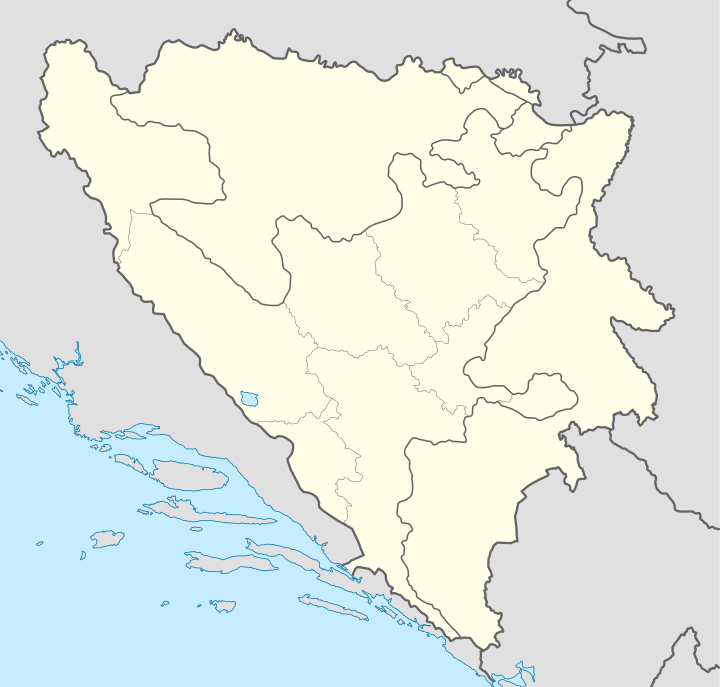Ljubija (town)
| Ljubija | |
|---|---|
| Town | |
 Ljubija | |
| Coordinates: 44°55′N 16°37′E / 44.917°N 16.617°E | |
| Country | Bosnia and Herzegovina |
| Entity | Republika Srpska |
| Municipality | Prijedor |
| Population (1991) | |
| • Total | 3,945 |
| Time zone | CET (UTC+1) |
| • Summer (DST) | CEST (UTC+2) |
Ljubija (Serbian Cyrillic: Љубија), is a small town in Bosnia and Herzegovina. It is located in the Bosanska Krajina region in the northwestern part of the country. Administratively, it belongs to the Prijedor municipality.
History
In the 19th century, Ljubija developed into one of the most important locations for the area's economy due to its iron ore deposits. After World War II Ljubija became one of the largest iron mines in the world which employed more than 5,000 people at any one time. Until 1965 it was governed as a separate municipality, before it was merged with Prijedor.
Bosnian War
On 24–25 July 1992, the Fifth Kozara Brigade and Sixth Krajina Brigade of the Army of Republika Srpska and local Serb paramilitaries, totaling at 3,000, attacked Ljubija and killed 73 Bosnian Croat civilians.[1] Non-Serb workers at the Ljubija mine were dismissed explicitly because of their ethnicity.[2] The mine is believed to have been used as an execution site and to be a mass grave holding the bodies of as many as 8,000 Bosniaks and Croats.[3][4]
Notes
References
- Bosnia and Herzegovina: Behind Closed Gates — Ethnic Discrimination in Employment (PDF) (Report). Amnesty International. 26 January 2006. EUR 63/001/2006.
- Bosnia and Herzegovina: The Unindicted — Reaping the Rewards of "Ethnic Cleansing" (Report) 9 (7). Human Rights Watch. January 1997. D901.
- "Bosnian Iron Mine May Conceal Mass Grave, Report Says". Los Angeles Times. 11 January 1996.
- Hedges, Chris (11 January 1996). "Bosnian Mine Is Thought to Hold Evidence of Mass Killings". New York Times.